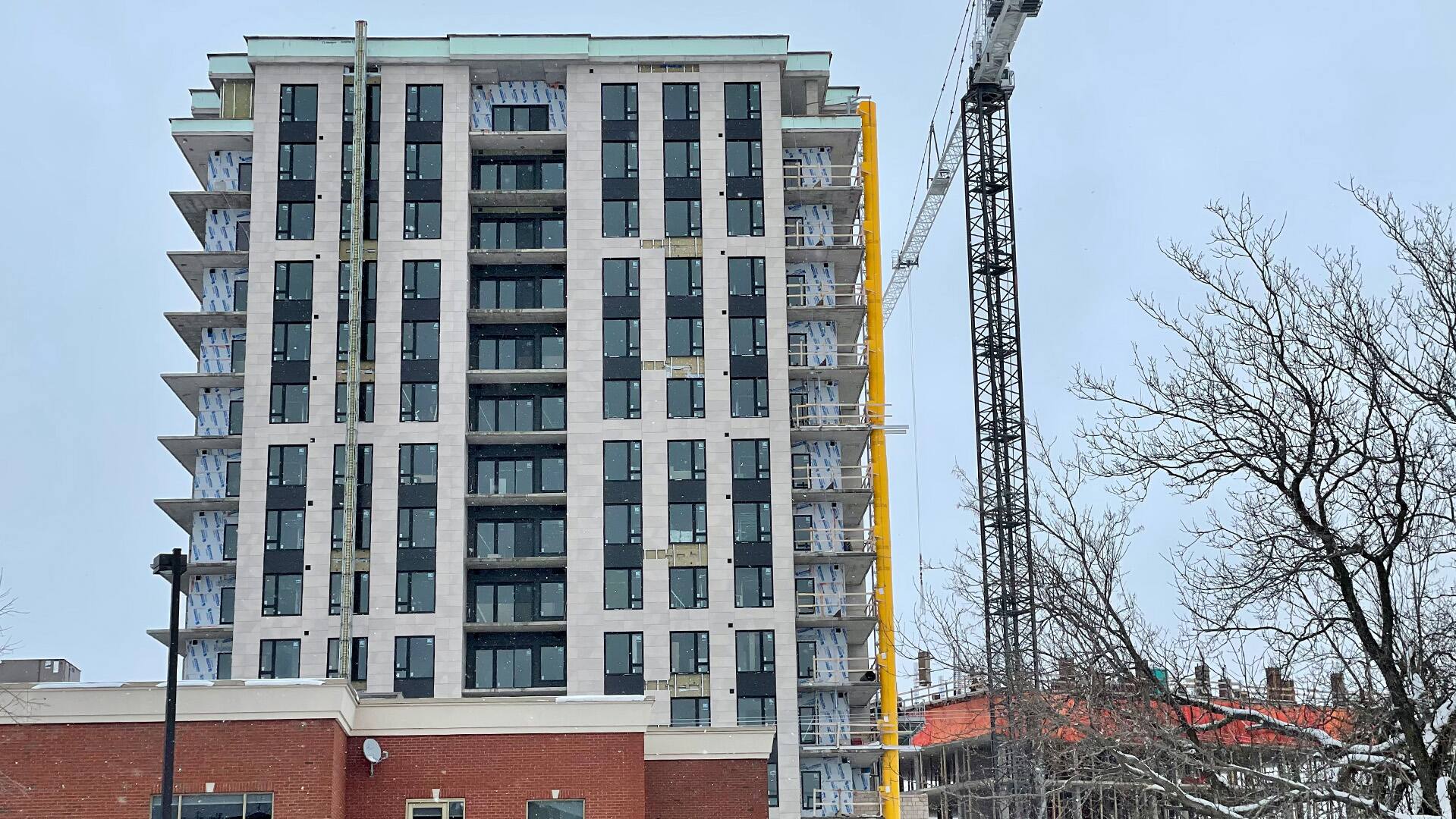New Brunswick construction companies are facing a major labour shortage being felt across Canada. The province’s industry association estimates it currently needs more than 2,000 workers right now, and will have to fill an estimated 5,000 jobs over the next five years.
Lack of workers leading to costly delays, new recruitment strategies

As new homes continue to go up in Moncton, contractor Andrew Nelson gets lots of calls about taking on new projects. But with not enough workers, he routinely turns them down.
“My standard answer now is ‘What’s your timeline?'”
If they say they want to get started within the next year or two, “it’s not likely going to happen,” Nelson said.
New Brunswick construction companies are facing a major labour shortage that’s also being felt across Canada. The province’s industry association estimates it currently needs more than 2,000 workers right now, and will have to fill an estimated 5,000 jobs over the next five years.
The lack of workers comes at a time when Moncton is experiencing a building boom. The city set a record for development last year, issuing $366 million in permits and more than 1,200 new residential units were added in response to the fastest population growth in the country.
But as cranes keep rising on the skyline, construction companies just can’t keep up. The shortage of skilled workers, tradespeople and general labourers is leading to costly delays, unpredictable timelines and slow starts to projects.

Nadine Fullarton, president of the Moncton Northeast Construction Association, said demand has been at an all-time high, which is putting even more pressure on the labour force.
“It’s a people problem. There’s just not enough people in New Brunswick to fill those job vacancies,” she said.
In New Brunswick, nearly a third of construction workers are 55 or older and expected to retire within the next five years. The generation gap is contributing to the shortage, along with fewer young people entering the industry.
Turning to immigration
Construction companies are struggling to fill jobs locally, despite turning to marketing and recruitment firms for help.
Nelson said he can count on one hand the number of people from New Brunswick who’ve applied over the past year. The owner of Homestead Bay Contracting, which builds residential properties, currently has 10 employees but has enough work for more than 30.
WATCH | ‘It’s been a struggle’ as construction companies try to fill jobs:

Construction projects face costly delays amid labour shortage
New Brunswick’s building boom has hit a major obstacle: not enough workers to keep up with demand.
“It’s been a struggle and it’s hard. Customers are so upset. How long is this going to take? I can’t tell you that because the labour’s such a scary thing.” And it’s the same “for my electricians and plumbers,” he said.
The company has shifted its focus to finding workers in South America, Africa and Europe, even if that approach comes with the complications of navigating a slow immigration system. It can take more than a year to bring a construction worker to Canada, and with unexpected delays, estimating a project timeline for a customer can be nearly impossible.
Maksym Bilam, a construction worker originally from Ukraine, is one of several international employees Nelson has hired. He worked in the field in his home country, but he said it was challenging to land a job in Canada when he applied for positions nearly seven years ago.

Bilam said he enjoys working in New Brunswick and seeing a project go from start to finish. “At the end of the day you will see that you spent your time in the right way,” he said.
Fullarton said the industry would like to see the federal government make it easier to bring in employees as temporary foreign workers and through other programs.
“We’re really ramping up our efforts to advocate for immigration reform that will allow our members and contractors to bring in the talent that they need,” she said.
The industry association is also working with the province to encourage more young people in New Brunswick to enter trades and construction. It would like to see more shop classes and related-curriculum return to high schools.
“We really need to work together with government to put it back to a place where we’re able to recruit right from high school and bring these people into our industry, so we can continue to build the services that Canadian citizens have come to rely on,” Fullarton said.
ABOUT THE AUTHOR
Alexandre Silberman is a video journalist with CBC News based in Moncton. He has previously worked at CBC Fredericton, Power & Politics, and Marketplace. You can reach him by email at: alexandre.silberman@cbc.ca

